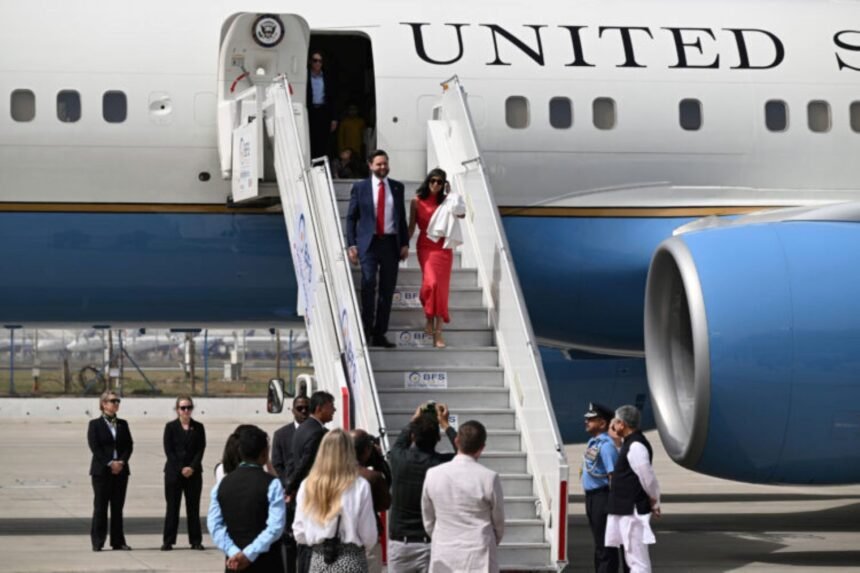US Vice President Jay D. Vence has arrived in India for a four-day visit aimed at addressing bilateral trade relations and negotiating a potential trade agreement with Washington. The visit comes at a time when India is looking to avoid US-imposed tariffs and strengthen its ties with the Trump administration.
During his visit, Vence is scheduled to meet with Indian Prime Minister Narendra Modi to discuss bilateral relations, following Modi’s meeting with President Trump in February. The United States remains India’s largest trade partner, and India and the US have set an ambitious goal of doubling bilateral trade to $500 billion by 2030.
This visit also coincides with the ongoing trade war between the US and China, India’s regional rival. Vence’s first trip to New Delhi comes amid US tariffs on several countries, including India, which are temporarily suspended until July 9, 2025. President Trump had announced tariffs of up to 26% on Indian exports to the US, which are set to begin after a 90-day delay.
As the US and India negotiate a trade deal, the agreement could significantly strengthen economic ties and potentially improve diplomatic relations. The two countries also aim to expand defense cooperation. With President Trump looking to bolster partnerships, India is expected to purchase more energy, oil, and military equipment from the US, aligning with US foreign policy.
Vence’s visit is critical for both countries, given the growing economic influence of China. India is a member of the Quad alliance, which includes the US, Japan, and Australia, and serves as a counterbalance to China’s growing regional influence.
Key highlights of the visit include:
- A focus on economic relations and trade negotiations between the US and India.
- Discussions about regional and global issues of mutual interest, including defense and security.
- Efforts to ease the impact of potential tariffs and explore trade opportunities in key sectors like agriculture, processed food, medical equipment, and more.
Sluggish trade talks could pose significant risks for India, particularly in sectors heavily impacted by tariffs like agriculture, machinery, and medical supplies.







